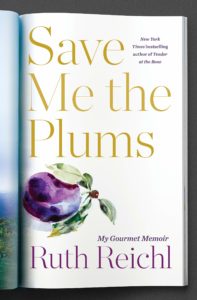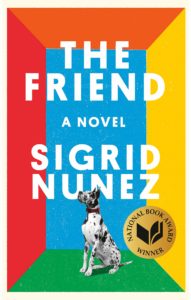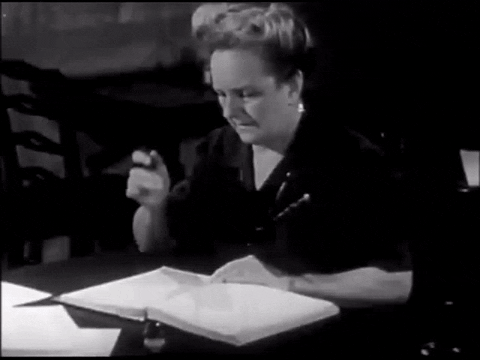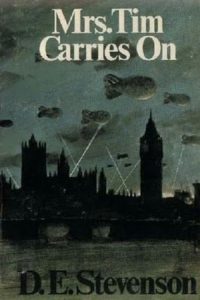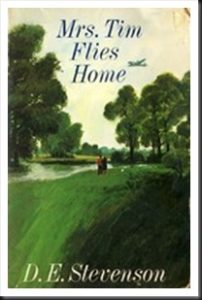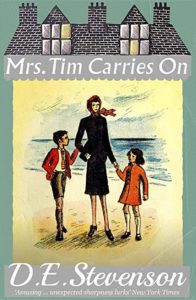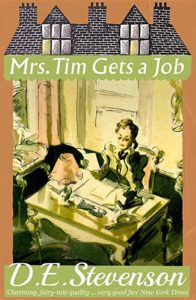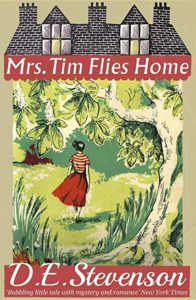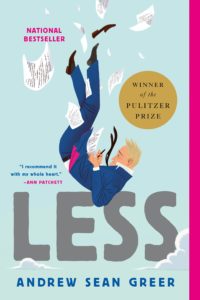Paris By the Book by Liam Callanan
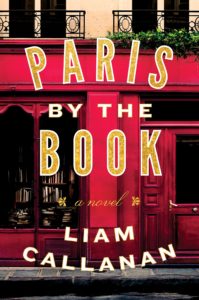 I am truly hopeless. Despite a house full of books, I’m nonetheless tempted by the librarian recommendation shelf at my branch library. Often there are gems that haven’t received much publicity. Paris by the Book seemed like just such a gem. The cover called my name and the description reached out to shake my hand. A setting in Paris, a cozy bookstore and a family mystery. Then there was the first sentence: “Once a week, I chase men who are not my husband.”
I am truly hopeless. Despite a house full of books, I’m nonetheless tempted by the librarian recommendation shelf at my branch library. Often there are gems that haven’t received much publicity. Paris by the Book seemed like just such a gem. The cover called my name and the description reached out to shake my hand. A setting in Paris, a cozy bookstore and a family mystery. Then there was the first sentence: “Once a week, I chase men who are not my husband.”
I had it checked out and under my arm in no time.
Milwaukee novelist Robert Eady is gone, but his wife, Leah and daughters aren’t too concerned. They’ve become accustomed to his ‘write-aways’ — when Robert, an author of children’s books, leaves for a few days of writing, and then returns. He always left a note saying when he’d be home again, and he always came back.
But this time he doesn’t leave his usual note but instead leaves his wife and daughters plane tickets to Paris. So to Paris they go and one of their leads takes them to a small, floundering English-language bookstore whose aging proprietor is eager to sell the shop.
So what do they do? They buy the shop and decide to live in Paris. Okay I really like these people. Especially Leah our narrator, who is usually hapless but always funny, honest, and snarky.
The daughters, who are mature beyond their years, integrate themselves easily into Parisian life and their new school — all while they continue to search for their father. But, we soon learn from Leah’s story that her marriage had its issues, and past hurts reveal themselves to her daughters:
We should have stayed in Milwaukee. Or we should have moved to the desert. Jupiter. Some place he’d never find us. Some place we’d never find him.
So the reader is drawn into the mystery — Robert may or may not be dead. Is Leah abandoned or widowed? Does she really want him back?
We learn about Paris through two of the couple’s favorite Paris things. Robert admired the Madeleine books and their fanciful depiction of Paris. Leah, on the other hand, adores the film The Red Balloon and its realistic version of the city just after the war.
Some parts of the story are nonsensical, but Paris by the Book is a fast-paced read and I didn’t bother to ponder the logic of the story line. I got caught up in Mr. Callanan’s depictions of Paris which are breathtaking and his unique characters who aren’t always likeable, but compelling in their own right
I didn’t love this book, but I certainly enjoyed it. Paris by the Book is a clever concoction — a rickety marriage, a faulty mother, a family mystery — all stirred up with books, bookshops and the stunning beauties of Paris as a backdrop.
I’ll leave you with this photo from the top of Notre Dame before the fire.
Save Me the Plums by Ruth Reichl
I’m a fan of Ruth Reichl – from her restaurant reviews, to her time as editor of Gourmet magazine, to her memoirs and cookbooks – I’ve read most everything she’s done. So I was highly excited to read her latest memoir mostly because it gives more insight into the great, late lamented magazine — Gourmet (I subscribed for many, many years and miss to this day).
Save Me the Plums opens as an 8-year-old Ruth finds an old Gourmet Magazine in a used bookstore while accompanying her father on errands. She is transported by its descriptions of foreign lands, exotic foods and ingredients. She begins to collect the magazines and starts cooking. Her cooking skills expand as her mother brings home strange new foods and her father takes her through different ethnic neighborhoods to search for ingredients.
Forty years later and Ms. Reichl, now the restaurant critic for the NY Times, gets an unexpected offer from Condé Nast to run Gourmet Magazine. There are many adjustments in this new career, one of which is her delight to once again cook and eat at home rather than reviewing restaurants most every night. She is excited but also intimidated and overwhelmed during her first few weeks as editor of Gourmet Magazine.
She’s suddenly thrust into the role of highly paid executive, flying and traveling first class, having a limousine and driver, and most astonishingly, having a clothing allowance. Ms. Reichl is surprised how quickly she adapts to the monied, glitzy world of Condé Nast –her portrayals of the lavish Gourmet parties are some of her best food writing. She also gleefully sprinkles in snide and sometimes snarky gossips about the staff .
There’s a chapter on a business trip to Paris that made me clench my teeth with unseemly envy. Ms. Reichl travels in Condé Nast style, with lunch at at the famed Pierre Gagnaire , a suite at Le Meurice hotel and a shopping trip to the original kitchenware emporium E.Dehillerin where the staff loads up on copper pans. This wild trip results in one the best selling Gourmet issues on Paris (an issue I saved and still have).
In one of my favorite parts — she opens the door to reveal the famous Gourmet test kitchen(s) – and from her description they are (whoops were) everything I imagined. She writes of 9/11 and how in those same test kitchens the staff at Gourmet cooked for the first responders and firefighters.
Save Me the Plums presents a different Ruth Reichl, once a Berkeley hippie who palled around with Alice Waters seeing the beginnings of the slow food movement — this Ruth Reichl is now a sophisticated publishing executive who, for ten years thrived on everything Gourmet both gave her and demanded of her.
In Save Me the Plums Ms. Reichl gives us a rich portion — a glimpse into the luxurious world of magazine publishing, and shares her decade at the helm of Gourmet with warmth, candor, and humor.
And for dessert, she even includes a few of her favorite recipes.
An Advanced Readers Copy was kindly provided by Random House
—————————————————————————————————————————————
Also recommended: My Kitchen Year and any of Ms. Reichl’s memoirs.
The Friend by Sigrid Nunez
I know, I know — it’s been ages since I posted here. No excuses, merely laziness combined with doing other things. My apologies. Good news, I have finished several books and they’re stacked up right here by the computer. I promise to try and do better, to post more often, and tell you about my reads.
The Friend by Sigrid Nunez
Remember THIS post wherein I made a vow to read more critically acclaimed books?
Well, folks here’s another one.
I caught an interview with Ms. Nunez on NPR when The Friend was published last year. She was smart, charming and eloquent. Later, when it won the National Book Award, I thought I’d better give it a try. I finally found it in my huge teetering stack pile of TBR’s and opened it one evening.
A short novel, at a little over 200 pages, it reads as a writer’s journal. The ‘friend’ in the title is our unnamed narrator’s ex-lover and literary mentor — a reprehensible womanizer with three wives (two ex; one current). As the book opens, the friend has recently committed suicide, leaving our narrator, his current wife, and his huge Great Dane, Apollo, traumatized.
No one wants to take Apollo. Our grieving narrator, living in a no-pets-allowed New York City apartment takes the giant dog home until something can be sorted out:
“It’s not his fault he’s not a cute little puppy. It’s not his fault he’s so big. And it might sound crazy, but I have this feeling that if I don’t keep him something bad will happen. If he has to move one more time, he could develop so many problems he’ll end up having to be put down. And I can’t let that happen. I have to save him.”
Wife One says, “Who are we talking about?”
The dog and our narrator both are suffering with grief and depression. The narration meanders around several major themes, the unexplained suicide of the mentor, the struggles of writing and teaching writing, and the narrator’s relationship with the Great Dane.
There are some very funny bits — as when our narrator takes Apollo to her therapy session and when she discovers that the languid dog perks up when she reads to him out loud. Simultaneously, there are some beautiful, heart wrenching passages, such as this one written in the writers journal style:
The dead dwell in the conditional, tense of the unreal. But there is also the extraordinary sense that you have become omniscient, that nothing we do or think or feel can be kept from you. The extraordinary sense that you are reading these words, that you know what they’ll say even before I write them.
Together our narrator and Apollo struggle through and come to a somewhat reluctant relationship — but just then the book ends abruptly and the last chapter left me up in the air.
In the end, this book is a stream of consciousness about love, friendship, life, suicide, pets, and writing.
There is no real plot, there are no resolutions, and the only fully developed character is the dog.
Yes, it won the 2018 National Book Award and yes, The Friend is beautifully written,
but I found it a beautiful disappointment.
The Language of Food by Dan Jurafsky
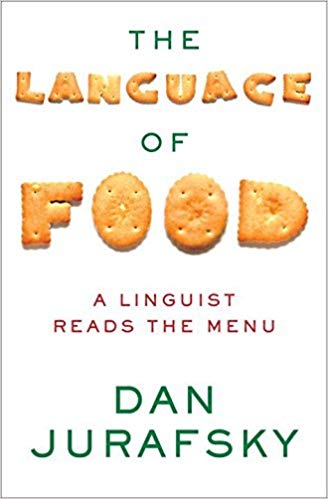 The Language of Food A Linguist Reads the Menu
The Language of Food A Linguist Reads the Menu
by Dan Jurafsky
Fellow foodie friends loaned me this book. We share a love of cookbooks, cooking and seeking out new foods — but they touted it as a completely different type of food book ~~ The Language of Food is just that – like nothing you’ve ever read.
Written by a professor of linguistics and computer science at Stanford University, Mr. Jurafsky (and his team) devoted many (many) hours exploring the origin of food terminology — from food names to the nuances of menu writing — and happily melded it all with computerized linguistic tools to evolve the genesis of this book.
Whoa, I first thought — way above my mental pay grade, but I was instantly fascinated by the introduction, in which the author explains his fascination with food linguists and how it involves the science, history, and culture of many regions. He explains the origin of ‘ketchup’ which derives from a pungent Chinese fermented fish sauce pronounced ke-tchup in Cantonese. This sauce was brought back to Europe by English and Dutch explorers and evolved over 400 years to suit Western tastes and become today’s ubiquitous tomato based condiment. Macaroni descends from a Persian almond pastry which intermingled with the pastas of the Arabs to become pasta. And toasts at weddings historically involved toasted bread.
The first chapter of The Language of Food is devoted to menus and their language. You will both chuckle and be struck at restaurant menu manipulation Back in the 1970’s the use of French denoted expensive and swanky meals – such as ‘Fried Chicken a la Maryland’ or ‘Ravioli en casserole’. Today fancy restaurants do the same thing with often ridiculous descriptions of the origins of the food — grass fed, pasture raised, green market cucumbers (this is especially rampant here on the West Coast and was lampooned in a very funny episode on Portlandia — watch clip HERE.)
But I digress…
Restaurant price points are so ingrained in their menu language that we’re not even aware of it (at least it never occurred to me before). Expensive restaurants use ‘chefs daily selection’ or set prix-fixe menus. In contrast, cheaper places give the diner a lot of choice – not only do they have far more dishes, they also prepare meals to your liking ‘prepared your way’. In fact Mr. Jurafsky points out that the words ‘you’ and ‘your’ appear much more often in cheaper restaurants. And what about middle-priced places? — well they tend to use lots of adjectives such as this mouth watering description of an apple pie:
Rustic Apple Galettte: Hand crafted tart in five inches of butter flaky french puff pastry. We layer fresh ripe apples and bake to a golden brown.
I’ll leave this menu chapter now, but not before I point you to something mentioned which I almost missed – the NY Public Library Menu Collection. I had great fun wasting time one rainy evening. Just take a look and click on some of these wonderful old menus that have been digitally preserved – such as from ocean liners back in the early 1900’s or you can enter a favorite restaurant from your memory and there it is. Such fun.
Okay back to the book.
Sex, Drugs, and Sushi Rolls is an eye-opening chapter on the power of language in restaurant reviews – and how reviewers often use words connected to sex or drugs to hype — such as ‘the chicken wings are addicting’ or ‘the ice cream pastry was just orgasmic’. Perhaps most interesting was the scientist’s investigation into often rigged on-line reviews (such as Yelp) which can sadly bring down a perfectly good restaurant.
In other chapters, you’ll get to read about junk food marketing and how advertising copy got us to crave potato chips and kettle corn at festivals. You’ll learn why the Chinese don’t have dessert and how today’s group cooking/dinner parties evolved from cooking clubs in a mouth watering region in Basque.
I think it comes with the territory, that a food linguist/computer scientist can and will get pedantic. So I must admit I didn’t entirely get through each and every chapter, but I did read quite a bit more of this book than I originally thought I would – (see Mental Pay Grade above…)
The Language of Food is sometimes geeky but more often actually quite fascinating, and I applaud Mr. Jurafsky for devoting so much effort to bring us such delightful insight into the language, history, culture and origins of our food and eating experiences.
I’m off to make our dinner and it’s definitely going to be chefs choice…. 
Mrs. Tim Series
Back in the 70’s I discovered a copy of Mrs. Tim in a used book store — the war-time diary of the delightful Hester Christie—or ‘Mrs. Tim’ as she is called after her officer husband. The author, D.E. Stevenson, based this series from her own wartime diaries:
There is so much War News in News Bulletins, in Newspapers, and so much talk about the war that I do not intend to write about it in my diary. Indeed my diary is a sort of escape from the war . . . though it is almost impossible to escape from the anxieties which it brings.
I was so enthralled with Mrs. Tim’s daily happenings. I quickly found more in the series, and read them all with sighs of happiness. We see the war through the diary of this delightful wife and mother, her husband away at war, coping with domestic battles of her own. Mrs. Tim carries on with humor, wit, and a bit of snark.
There’s the daily routines of collecting gloves for soldiers overseas, making do with wartime rationing, and adjusting to an influx of Polish refugees. But Mrs. Tim also deals with an unwanted suitor, deftly handles a self important Air Raid Warden, and moving house. She tries to mask her fear when her husband goes missing in war-torn France, and shows bravery encountering a downed German aircraft (while shooting grouse in the Scottish countryside no less!). A rich aunt visits with inappropriate gifts and unwanted judgements, the cook is always in a bad temper, and she wrestles with a cranky old car.
So there you have it. A brave woman making a life during WWII.
Quietly fascinating domestic drama.
My old copies still live on my copious bookshelves — battered, worn, and with cracked spines. They’re written in diary format, so over the years I’ve found it easy and comforting to open a copy, at any place, to visit with Hester for a day.
Enter Scott over at Furrowed Middlebrow. An extraordinary fellow, with a keen interest in documenting and publishing largely forgotten British women writers from the early to mid-twentieth century. As a result, he launched Dean Street Press which has a delightful list of titles with sigh-worthy and (warning) very tempting covers.
And look what they’ve done — Dean Street press have just reprinted the Mrs. Tim series .
Just look at these covers — the artwork is lovingly reproduced from early editions.
Dean Street Press (and Scott) kindly sent me the digital edition of Mrs. Tim Carries On so I could talk about it here. I re-read it on my Kindle during the past few rainy days/nights and it still delights.
If you haven’t read D.E. Stevenson, be sure get yourself a couple of these beauties. This new edition of Mrs. Tim Carries On has a wonderful introduction by Alexander McCall Smith which will give you background on Mrs. Tim and D. E. Stevenson.
It’s awfully nice sometimes to treat yourself to fine books which, if you’re like me, you’ll enjoy and re-read for many years to come.
I may just join you – I keep sighing over those covers and isn’t it time to upgrade my broken old copies?
(Rationalizing is my own special super power.) 
Less by Andrew Sean Greer
I’ve decided I need to venture out of my safety zone and read more widely acclaimed books. You know, those books getting media attention, the runners-up, and the actual prize winners. Don’t get me wrong, I often read notable books and have reviewed them here – but the experiences are often checkered.
Less won the Pulitzer Prize for fiction in 2018
Here, all this time, Less thought he was merely a bad writer. A bad lover, a bad friend, a bad son. Apparently the condition is worse; he is bad at being himself.
One day Less receives a wedding invitation — his younger lover from his latest long term relationship is getting married to an equally younger man. He can’t go, he just can’t, so he books himself on a trip around the world. He goes through his stack of pleas for his attendance at various writers conferences, teaching assignments, interviews, publicity junkets and cobbles together an exotic itinerary. These are not big name events, but those offered to middle tier authors — many are unpaid, some will pay only his expenses. It matters not to Less, he can now legitimately reply to the wedding invitation saying he will be out of the country at the time of the dreaded wedding.
And so off we go with Less to Mexico, Morocco, Berlin, Japan, India – a sort of Eat Pray Love journey filled with typically uncomfortable ‘Lessian’ travails. (Side-note: Less believes he speaks fluent German and his translated conversations had me giggling out loud, knowing that’s how I must sound when I speak my long-studied-but-never-mastered French.)
There, I’ve told you about the basic plot of this slim novel, but wait — wait there’s so much more.
You may have to barrel through the first few chapters — this is where Mr. Greer’s writing feels a bit uneven and disconnected — I almost gave up, but happy I didn’t. By the time you (and Less) are in Morocco — the writing meshes and starts to soar.
The prose goes from being sharp and insightful ~~
“Strange to be almost fifty, no? I feel like I just understood how to be young.” “Yes! It’s like the last day in a foreign country. You finally figure out where to get coffee, and drinks, and a good steak. And then you have to leave. And you won’t ever be back.”
His brain sits before its cash register again, charging him for old shames as if he has not paid before.
~~ to poignant
How can so many things become a bore by middle age — philosophy, radicalism, and other fast foods — but heartbreak keeps its sting?
…the time when any couple has found its balance, and passion has quieted from its early scream, but gratitude is still abundant; what no one realizes are the golden years.”
~~ and this gets my nomination for best sentence ever:
He kisses—how do I explain it? Like someone in love. Like he has nothing to lose. Like someone who has just learned a foreign language and can use only the present tense and only the second person. Only now, only you.
Not gay, you say, well neither am I– but no matter who you are, you’ll recognize a little (or a lot) of Less in yourself. As he travels he tries to write but instead muses back his life, his loves, his mistakes – all the regrets. Mr. Greer, himself gay, has written a humorous yet gentle novel all about the all-too-human fear of aging, and discovering that middle-age can bring grace and even love.
I won’t give away the ending, but let it be said – I cried…
A digital review copy was kindly provided by Hachette Book Group via NetGalley
—————————————-
As much as I enjoyed Less, I wondered about this slim, comic novel’s qualifications to win the Pulitzer and did some research – turns out Pulitzer’s guidelines are amazingly loose.
The winning book, be it a novel or short-story collection, must have been written by an American, and should, ideally, be in some way about American life.
HERE’S a list of other Pulitzer prize winning fiction. Still not sure it ranks up there with some of the others I’ve read, but then again, no one asked me to be a judge.
And, as Less learns it’s pronounced PULL-it-sir, not PEW-lit-zer.


